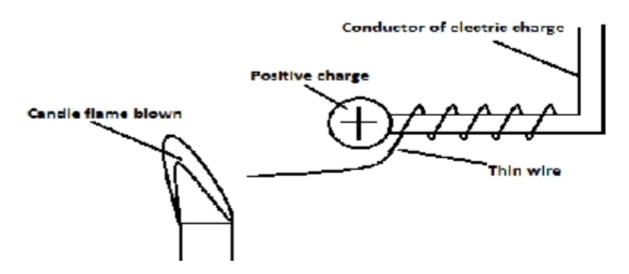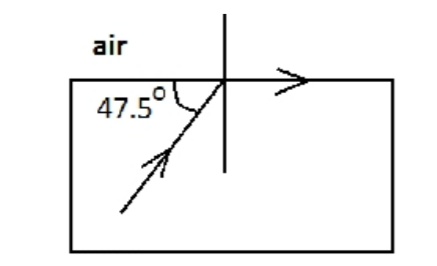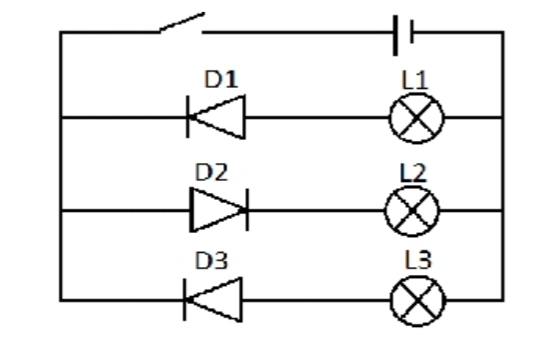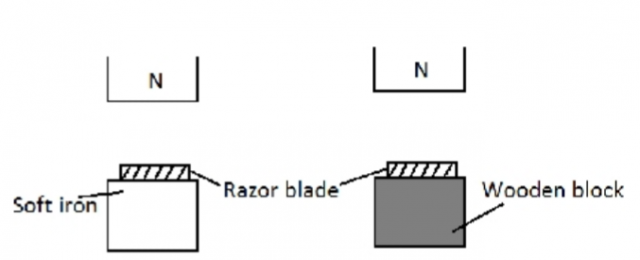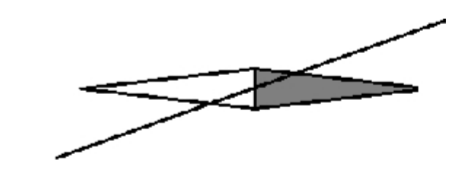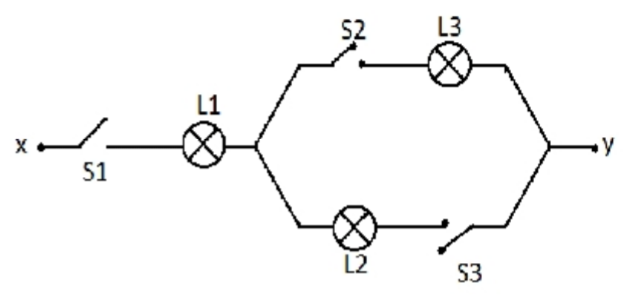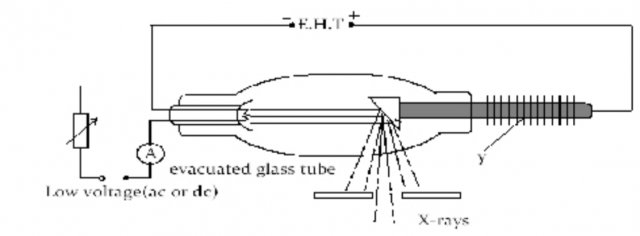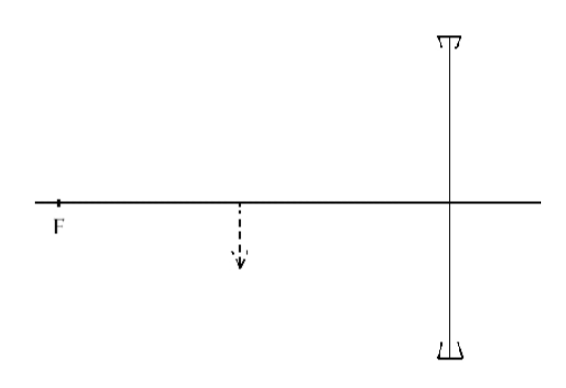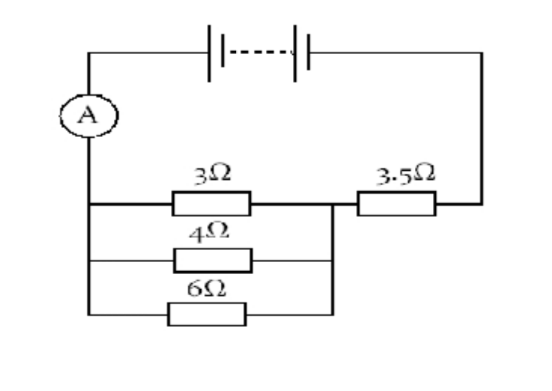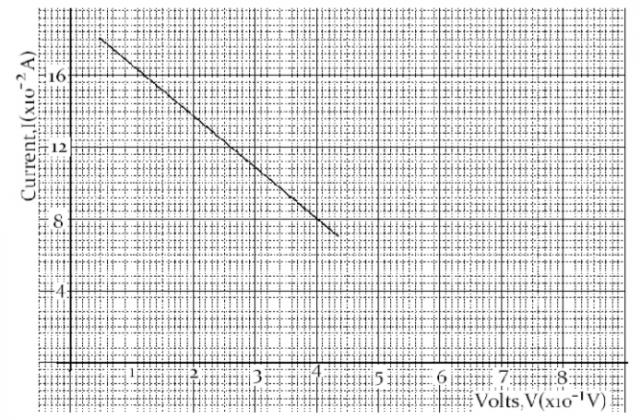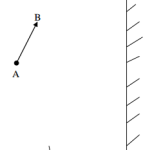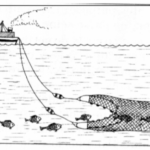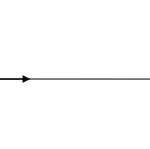KNEC KCSE Physics Paper 2 – 2014 KCSE COMA Joint Exam
2014 KCSE COMA Joint Exam
Physics Paper 2
SECTION A (25 Marks)
Answer all questions.
The figure below shows a thin wire connected to a charge generator and placed close to a candle flame.
Explain why the candle flame is deflected as shown.
3 marks
State the meaning of the term “threshold frequency” as used in photoelectric emission.
1 marks
The figure below shows the path of light passing through a rectangular block of perpex, placed in air.
Calculate the refractive index of the Perspex.
2 marks
A radio signal of 30MHz is received by an aerial whose length is 1/8 th of its wavelength. If the speed of light is 3.0×108 m/s determine the length of the aerial.
3 marks
The figure below shows an electric circuit with three diodes, three bulbs and a cell.
State and explain what would be observed when the switch is closed.
2 marks
What property of cathode rays shows that they are particles and not waves?
1 marks
Two similar razor blades are placed one on a wooden block and the other on a soft iron block as
shown in the figure below.
It was observed that the razor blade on the wooden block was attracted to the magnet while the other onthe soft iron block was not. Explain.
2 marks
The figure below shows a wire carrying current placed over a magnetic compass. On the wire, indicate the direction of electric current. The shaded side is the North Pole.
1 marks
Differentiate between a capacitor and capacitance.
1 marks
A 10μF capacitor is charged by a 100 V supply and then connected a cross an uncharged 20µF
capacitor. Calculate the final p.d on each capacitor.
3 marks
Fig. 7 shows an electric circuit including three switches, S1, S2, S3 and three lamps L1, L2, L3. A constant potential difference is applied across X and Y.
(i). Other than L1, state the lamp that will light when S1 and S2 are closed. (1 mark)
(ii). How does the brightness in L1 in i) above compare with its brightness when all the switches are close.(1 mark)
(iii). Explain the observation in ii) above. (1 mark)
3 marks
During total eclipse of the sun, both light and heat are observed to disappear simultaneously. Explain the observation.
2 marks
SECTION B (55 Marks)
Answer all questions in the spaces provided.
The figure below shows an X-ray tube.
(a) Label the part marked Y. (1 mark)
(b) How would one increase
(i). The intensity of the X –rays. (1 mark)
(ii). Penetrating power of the X –rays. (1 mark)
(c) Explain why the tube is highly evacuated. (2 marks)
(d) An X –ray tube operating with an anode potential of 10 kV and current of 15Ma.
(i) Calculate the number of electrons hitting the anode per second. (3 marks)
(ii) Determine the speed with which the electrons hit the target (3 marks)
(charge of an electron, q=1.6×10-19C, mass of an electron Me=9.1×10-31 kg.)
11 marks
A radioactive source, aluminum plate and a suitable detector were arranged as shown below.
(a)
(i) Before the source was introduced, the detector registered a reading of 40 counts per second. Explain this observation. (1 mark)
(ii) The following readings were obtained using a radioactive detector and a timer.
| Count rate(counts/s-1) | 1440 | 1272 | 1128 | 840 | 624 | 480 | 360 | 264 | 204 | 180 |
| Time | 0 | 3 | 6 | 12 | 18 | 24 | 30 | 36 | 42 | 45 |
(I). Plot a graph of count rate against time on the grid provided below. (5 marks)

(III). Using the half life determine how long it would take for the count rate to fall from 320 to 40 counts per second. (2 marks)
9 marks
(a) Define the term electromagnetic spectrum. (1 mark)
(b) Your radio is tuned into a radio station 144km away.
(i). How long does it take the signal to reach your receiver? (2 marks)
(ii). If the signal has a frequency of 600 KHz, how many wavelengths is the station from your receiver.
(Take C=3.0×108 m/s) (3 marks)
(c) State the function of magnetron in a microwave cooker. (1 mark)
7 marks
(a) Sketch the circuit symbol of a semiconductor diode and name its parts. (2 marks)
(b) What is rectification (1 mark)
(c) Study the diagram below and answer the following questions
(i). Calculate the current flowing through the 2Ω resistor. (2 marks)
(ii). Calculate the voltage drop across the 3Ω resistor. (3 marks)
8 marks
(a) Complete the diagram below indicating the rays that will lead to the formation of the image
shown below (3marks)
(b) A compound microscope with an objective lens Lo of focal length 1.2cm and an eye piece
lens Le of focal length 2.8cm. An object is placed 1.8cm from the objective lens. The system
of lenses produces a final image a distance of 12.0cm from Le. Determine the distance of
separation of lens Lo and Le. (4 MARKS)
(c) An object is placed 12cm from a convex lens and it forms a virtual image 36cm from the lens.
Calculate the focal length of the lens. (3 MARKS)
10 marks
(a) The diagram below show a battery of e.m.f 12V and an internal resistance of 0.17Ω connected to
a combination of resistors.
Calculate
(i). The current through the 3.0Ω resistor (3 marks)
(ii). The potential difference across the parallel connection. (2 marks)
(iii). The current through the 4Ω resistor. (1 mark)
(b) The graph below shows the variation of potential difference V with current I for a certain cell.
From the graph determine
(i). The internal resistance of the cell (3 marks)
(ii). The e.m.f of the cell (1 mark)
10 marks
